
'This is the first book I’ve done that has a coherent theme,' says David Shrigley. 'I made this big body of work last year and then I thought: what is this about? It seemed a good time to reflect on what my subject was after all this time. And I kind of thought it’s about emotional anxiety … ' Photograph: David Shrigley
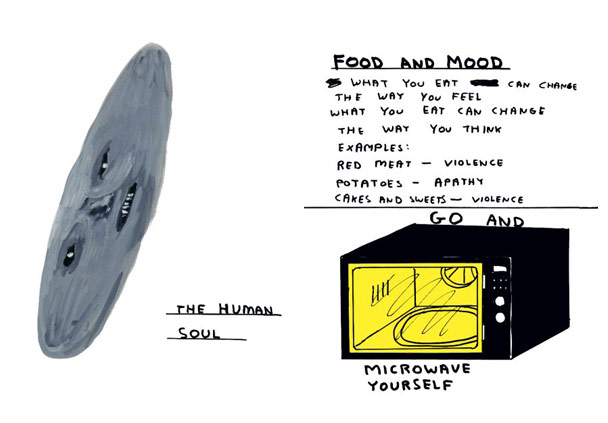
'I think what I do is really a view of psychosis written from the point of view of someone who is a bit mad but thinks everyone else is madder. I sat down and wrote text and lists of statements then I tried to match these statements with the drawings I had done.' Photograph: David Shrigley
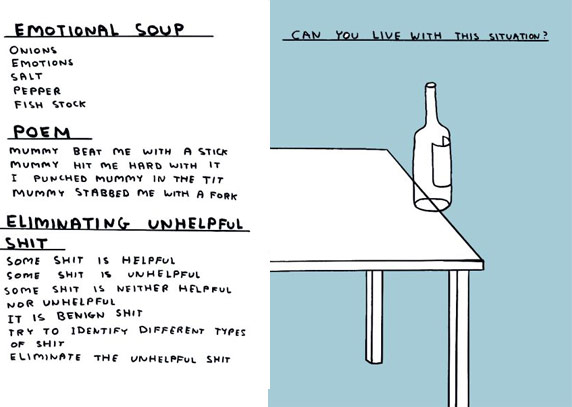
'If this book is satirising anything it is just the idea of self-help books. The ridiculousness of creating a template for living based on nothing at all.' Photograph: David Shrigley
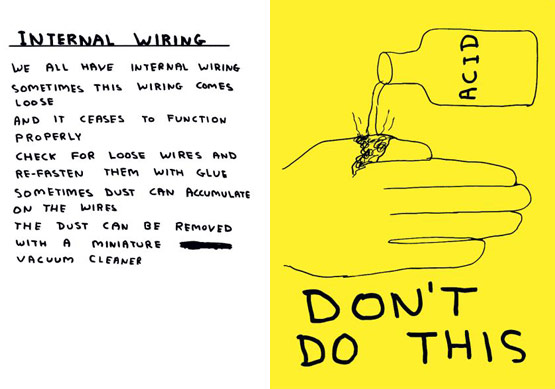
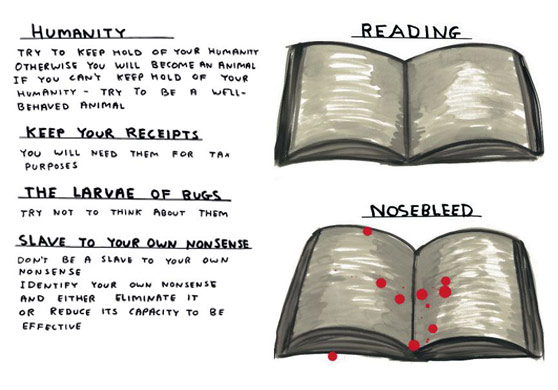
'In a way, I think, in terms of wisdom, the most banal truisms are the most useful: “do the right thing”, “whatever works”, stuff like that.' Photograph: David Shrigley
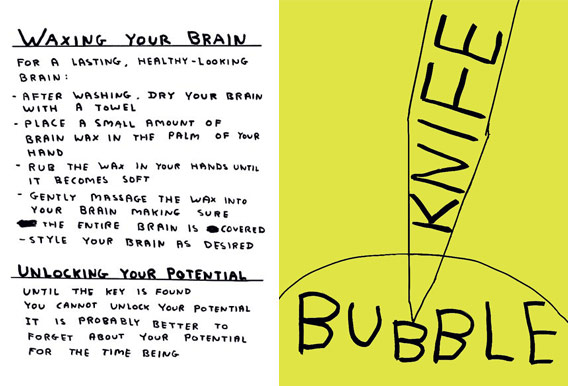
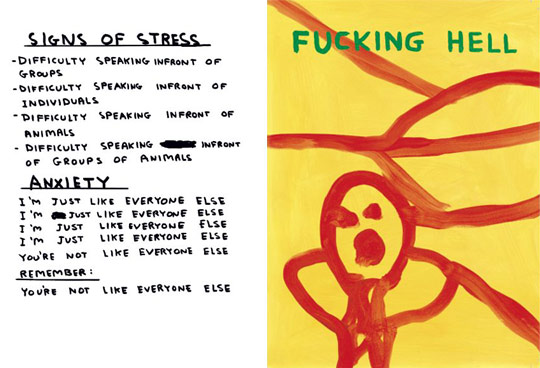
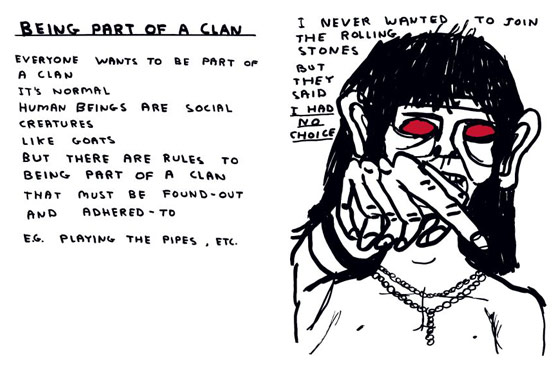
'We tend to have an idea of wellbeing and good mental health as an absolute, a constant,' says Shrigley. 'But it is really arrived at by a sort of ongoing consensus. You find yourself asking your partner: do you think I’m mad? The correct answer to this question is, of course: no, darling. But it would be quite easy to get the wrong end of the stick.' Photograph: David Shrigley
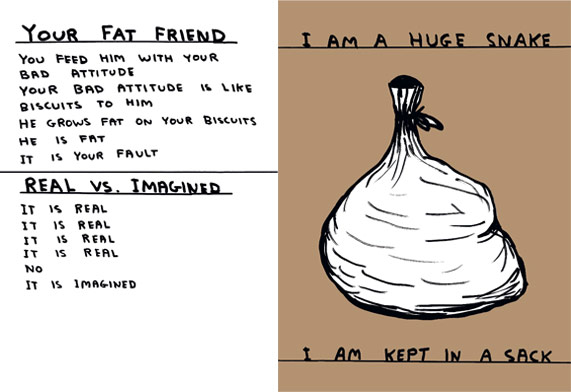
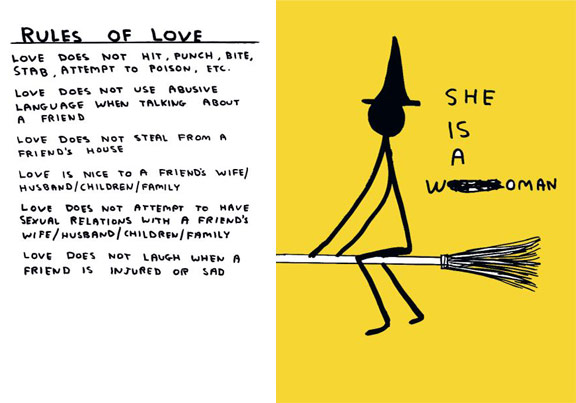
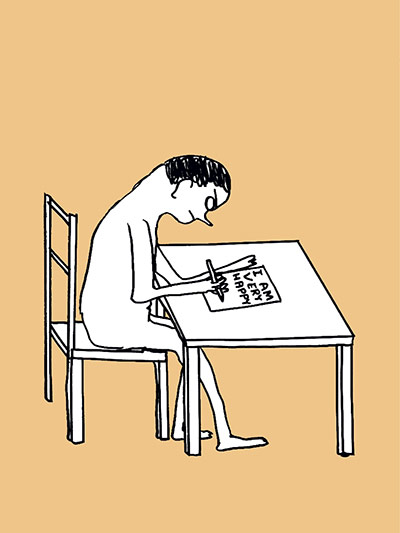
'If I felt I needed therapy, I would,' says Shrigley. 'But I wouldn’t do it to find out what my work was about. I guess I’m quite a functional person. I relate pretty well to my wife and my dog. I have some friends. I guess I’m doing OK.' Photograph: David Shrigley

